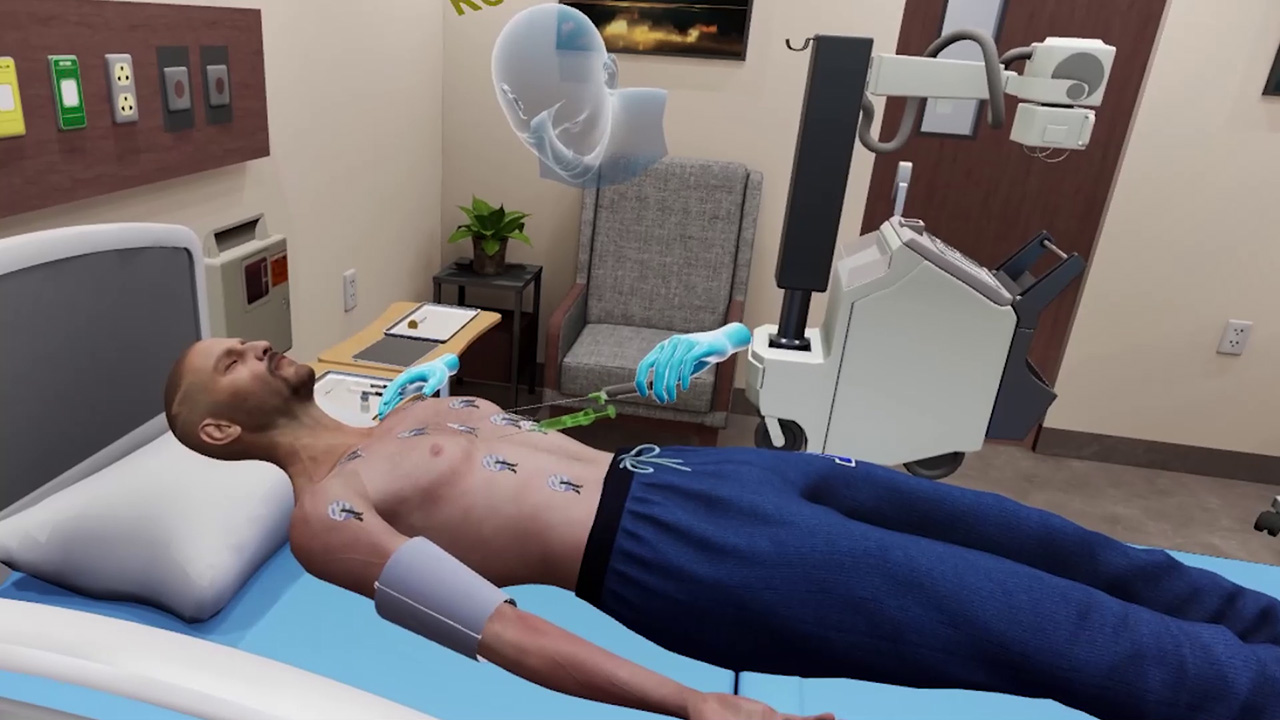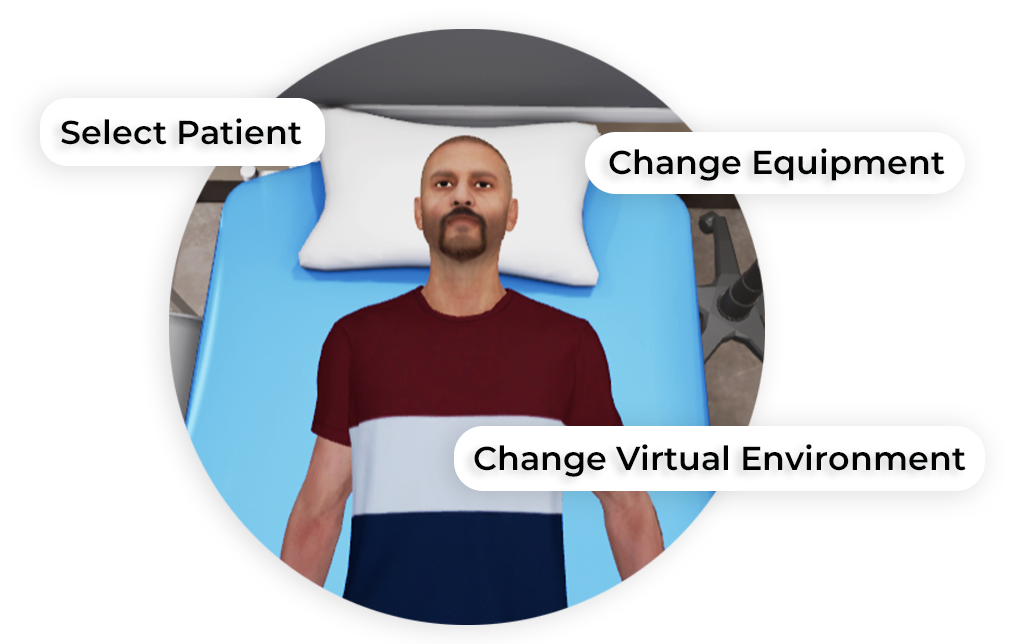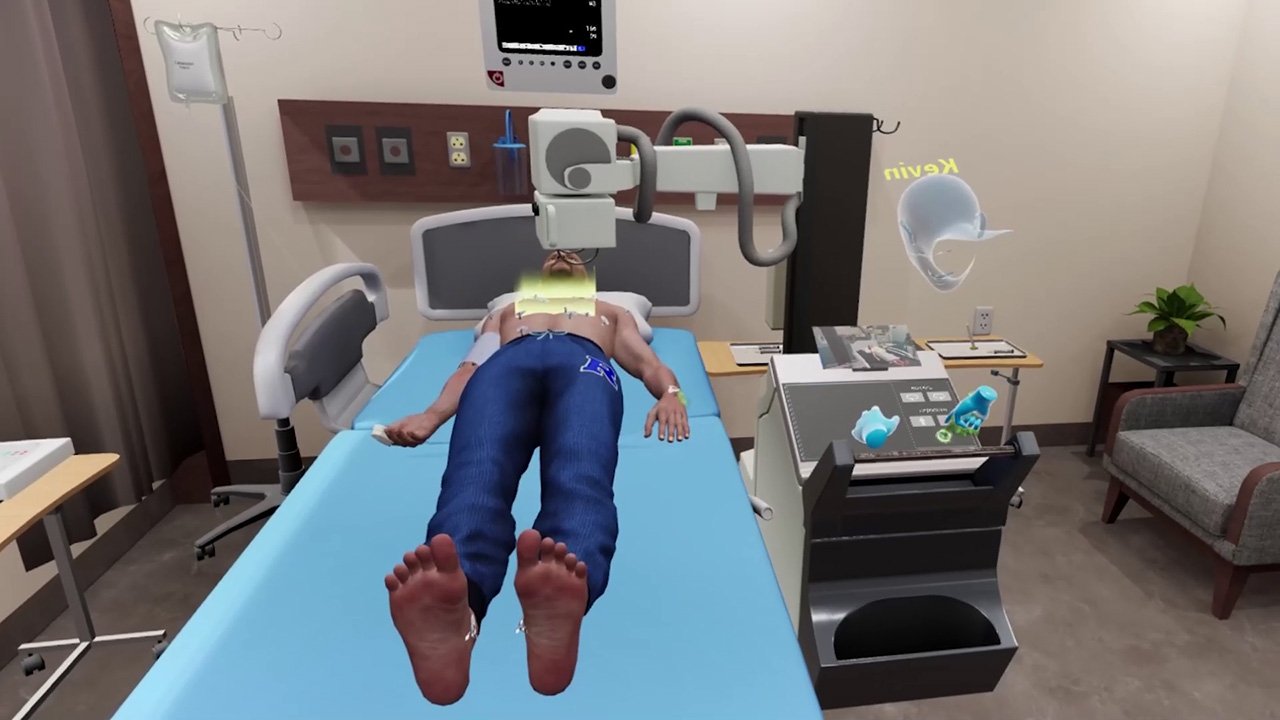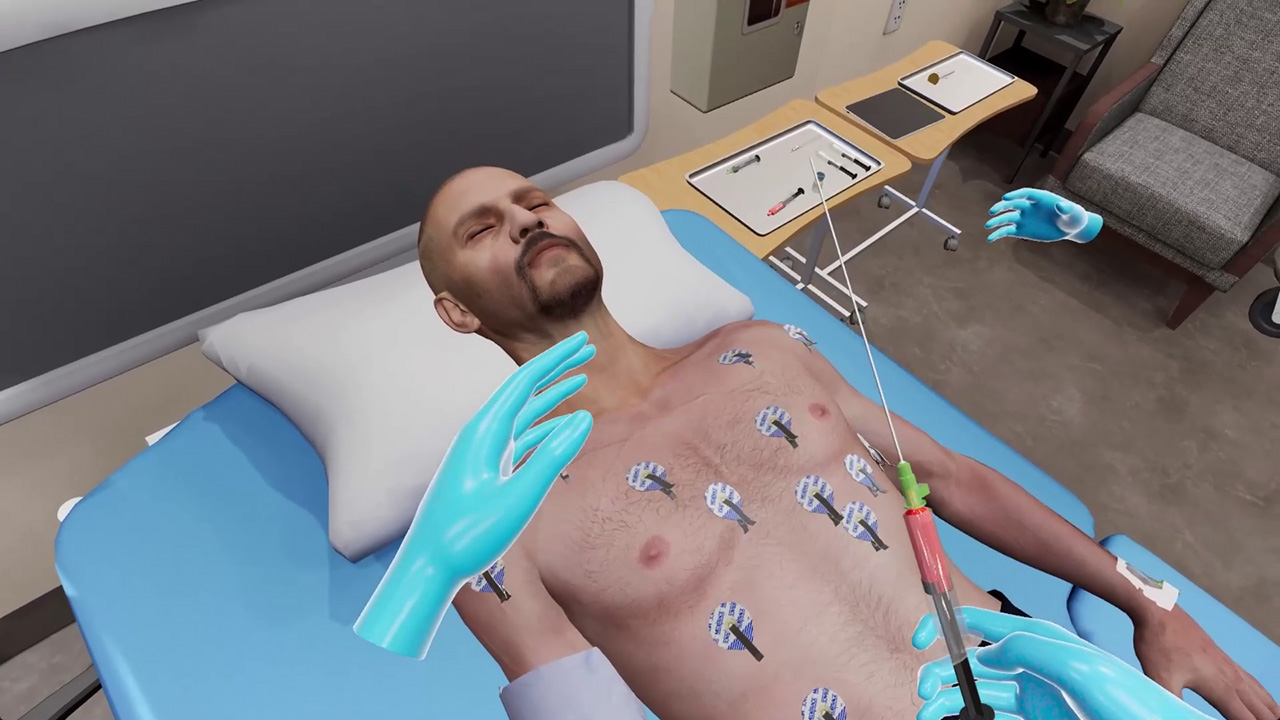Aortic Dissection
Antonio Garcia is 49 years old and has been presented to the ED with chest pain and abdominal pain. Symptoms started 2 hours ago with abdominal pain that was sudden in onset, diffuse, crampy, 10 on 10. This then travelled up into his chest. Antonio has a history of hypertension, alcohol and cocaine abuse.
This multiplayer VR session on Aortic Dissection is designed to provide learners practice in managing hypertension complicated by aortic dissection, mesenteric ischemia, and cardiac tamponade.
- Recognize the importance of social history even in unstable patients
- Understand patient is unstable and work-up cause
- Identify and treat aortic dissection
- Stabilize patient prior to imaging
- Prompt disposition
- Troubleshoot shock in the patient with aortic dissection
- Perform pericardiocentesis

- Cardiovascular effects of Cocaine. 2017. Journal of the American College Of Cardiology http://dx.doi.org/10.1016/j.jacc.2017. 05.014
- Guidelines for the Diagnosis and Management of Patients With Thoracic Aortic Disease. 2010. Circulation https://doi.org/10.1161/ CIR.0b013e3181d4739e
- Rosen’s Emergency Medicine (9th Edition)
Customize Your Program
Get rid of the editor. Adopt in-VR customization.
MedVR Education is bringing to you in-VR customization that will enable you to put together your own simulations by making selections from a wide range of feature choices.
- Select patient from a diverse background
- Choose preferred virtual environment
- Configure patient vitals
- Define simulation duration
- Create patient history and train with AI-Humans
- Customize session-end debriefing
- …..many more to come

 AI Patient Assessment
AI Patient Assessment Natural Language Processing
Natural Language Processing Multi-player
Multi-player
Sessions Physics-based Interaction
Physics-based Interaction
Core Skills Training

Aortic Dissection
As part of this Aortic Dissection open scenario, learners are required to enquire about the patient’s social history, with specific reference to illicit drug use. A physical exam will be needed for tachycardia, unequal radial pulses, diastolic murmur, and diffuse abdominal pain. Learners should be able to recognize hypertension complicated by aortic dissection and mesenteric ischemia. After CTA, when the patient develops cardiac tamponade from retrograde dissection, prompt pericardiocentesis will be required. All affordances are provided to help users complete their tasks with efficiency in a realistic and immersive learning environment.
Debriefing
End-of-task debriefing to assess one’s performance, evaluate actions, and get the most out of the training. Examples of topics being touched upon in the debriefing include the following:
- Thorough patient assessment
- Completion of necessary steps
- Correct medication administration to patient
- Sequential completion of task
- Execution of time-sensitive tasks







